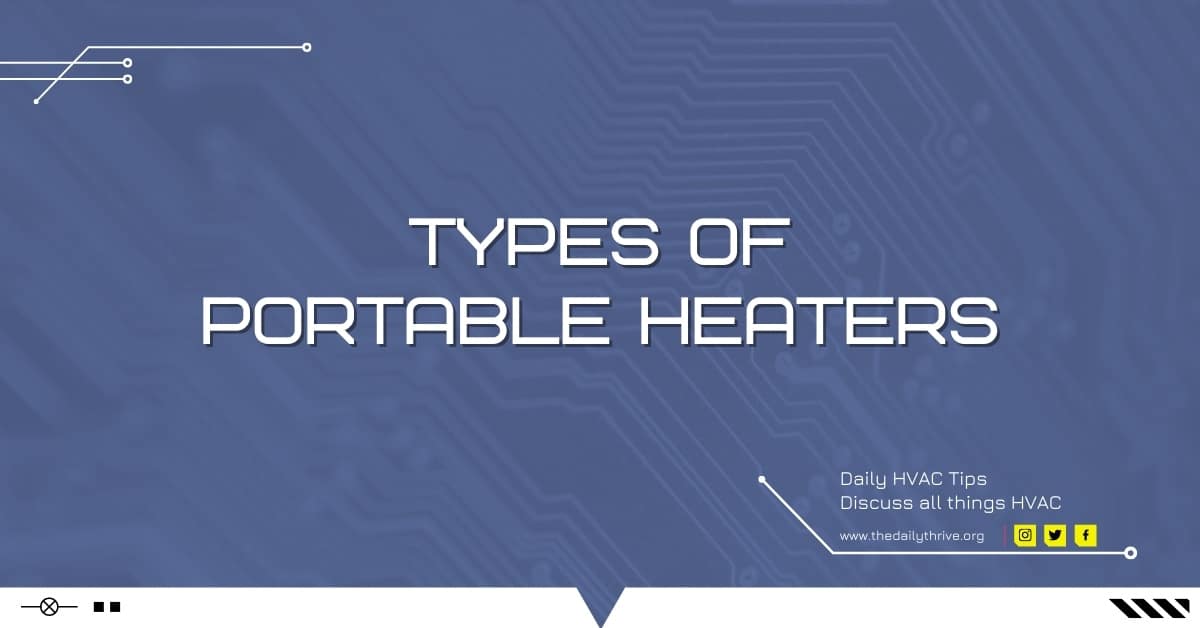One of the main advantages that a portable heater has is the fact that it’s portable. You need to consider how much and how often you will be moving it from place to place. Read on to find out which types of portable space heaters is best for you.
Think about how much it will be used and how often you will have to move it. If you are planning on leaving it in the same location all the time, then this want affects you.
While these types of portable heaters are normally used in garages or workshops, they can also be used in more industrial areas or during recreational activities, such as camping.
Kerosene Portable Heaters
Kerosene heaters are the largest and heaviest of all portable heaters. They use fuel-grade kerosene, which can be expensive. These heaters generally have a high or low setting.
The heat normally radiates out from the heater, so it can take quite a bit of time to heat the assigned space. Once that space is heated, there is no thermostat to signal the unit to quit producing heat.
The biggest negative of a kerosene heater is the smell. The safety factor is such that most state and local governments urge some sort of outside ventilation to ensure there’s no buildup of fumes.
These units come with the standard automatic shutoff in case of tip over. However, tipping over is unlikely due to the unit being bottom-heavy.
Radiant Heat
These electric heaters look and function much the way old-style radiators worked. Most of these heaters have a thermostat that allows you to control the room temperature.
The positives of these portable garage heaters include being quieter than forced air heaters, lighter, and less expensive than a kerosene heater, both in terms of initial and sustained cost.
The negatives are that these heaters can take quite a bit of time to heat even a small space.
The safety factor is very good on radiant heaters, as they all come with automatic shutoff in the event of a short electrical surge or tip over.
Forced Air Portable Heaters
Forced air heaters are the most popular of all portable space heaters. They are inexpensive to own and operate. They can heat a space in a short period of time, and most have a thermostat that allows for better control of room temperature.
These units are by far the lightest of all portable heaters. Many also act as fans during the warmer months by shutting off the heating element.
While their safety rating is very good, according to the U.S. Product Safety Commission, like other portable heaters, they should not be used as a primary heat source. And they should never be left unattended.
Choosing the Best Portable Heater
Portability
One of the main advantages of a portable heater is that it’s portable. It can move around to suit you rather than you reshifting to suit it. In the case of a garage heater with a portable unit, you’re not limited to only using it in the garage. You can use your unit during chilly backyard BBQs, outdoor parties, or even while camping.
Energy Source
Depending on which type of portable heater unit you decide to go with, you’ll need either fuel or an electric outlet. If you’re going to use your heater where electricity is available, then a corded electric heater will work well.
However, if you are going to be using it where there is no electricity, then you will need to consider propane or other sources of power heater. Make sure the heater you choose will work where and when you need it to and that the cost to keep it running won’t break the bank.
Set-Up
After you have figured out which heater will best serve your needs, you need to figure out how easy it is to set up. Some heaters are placed where you want them and turn on, but many require some type of mounting, etc.
You need to figure out how much trouble it is to set up for operation based on the fuel source, the physical size of the heater, mounting (if needed), time to get the heater started, and how long it takes before you are producing heat.
Heat Production
Make sure the heater you have chosen is the right size for the job. Most heaters have a recommendation on how much area they will heat. You need to consider the BTU rating. In general, the higher the BTU, the more heat it will produce.
Storage
Take into consideration where you will store these types of portable heaters during the times of the year; it will not be needed. Make sure you have enough room in a garage or storage shed to put it and also where it will not get damaged during this storage time before it’s pulled out again next season.






